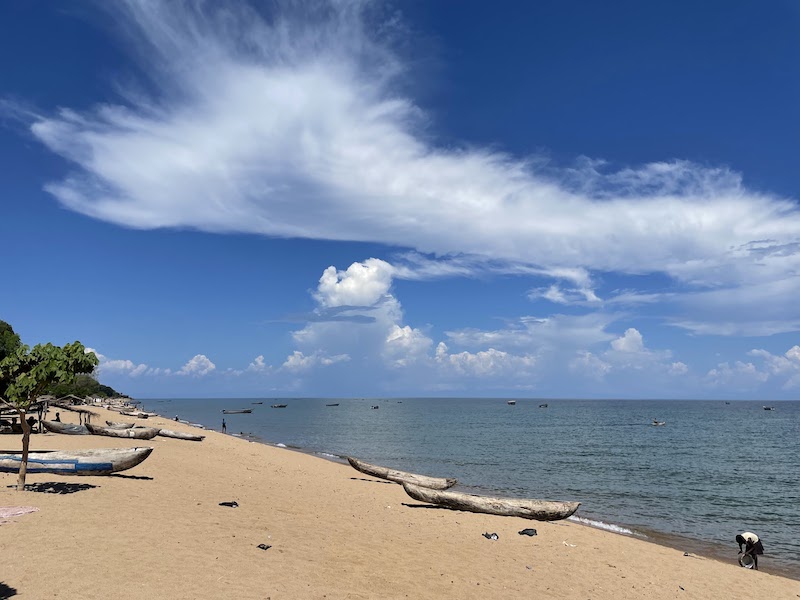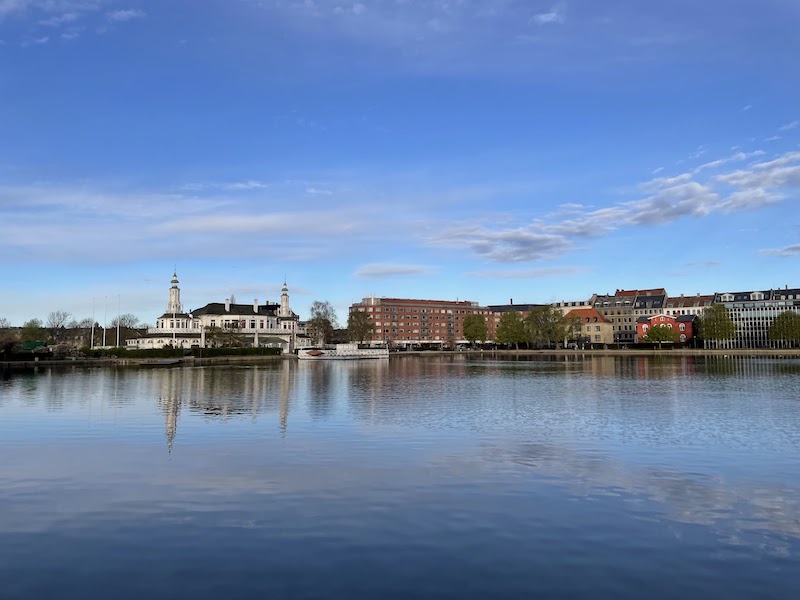"China!" A random stranger yells at me. Welcome to Malawi—the Warm Heart of Africa—though I don't consider it "friendly" and it is simply racial discrimination1. Over the last nine months living in the country, I've also received countless judgemental comments on my character, socio-economic status, and thought and behavioral patterns based on the stereotypes they might have against Japanese, Asians, and foreigners at large. Unfortunately, this kind of discomfort is the only yet non-negotiable reason why I cannot imagine my future living in this beautiful country; from my recent experiences in Ethiopia, Egypt, and Malawi, I learned being an Asian in Africa naturally puts me into an endless psychological tension with locals and brings a greater sense of insecurity and vulnerability. The alienated feeling strongly demotivates me to invest my short life in the environment.
 * Malawi is undoubtedly beautiful. My concern, and future opportunities, inversely, are centered around its people and businesses.
* Malawi is undoubtedly beautiful. My concern, and future opportunities, inversely, are centered around its people and businesses.
Meanwhile, I was recently traveling to Frankfurt in Germany, Tallinn in Estonia, Helsinki in Finland, Stockholm in Sweden, and Copenhagen in Denmark for two weeks by plane, ferry, and train. Although I'm willing to write a full article about the trip, the biggest surprise was that nobody stares at me in the public spaces and shops and restaurants. In Malawi, on the contrary, I always feel someone is looking at me whenever I'm outside. Thus, it's been a while since the last time I felt it was okay to be my authentic self from the deepest part of my heart, and I simply enjoyed the emotional freedom during the trip. What a great pleasure running in the city center of a large Scandinavian city for 10km with an empty mind! As running is an essential part of my life, I could easily live here permanently.
 * The rectangular lakes in Copenhagen's city center shape an extremely scenic pedestrian/cyclist path for locals and tourists. Running the lakeside was one of the most fruitful moments of my two-week vacation.
* The rectangular lakes in Copenhagen's city center shape an extremely scenic pedestrian/cyclist path for locals and tourists. Running the lakeside was one of the most fruitful moments of my two-week vacation.
That being said, there is no clear boundary between "here" and "there" in reality. Our world is interconnected in a complex way. One part of the world can embody both positive and negative aspects, and they share some of the characteristics with the other part of the world, and vice versa. At the same time, some of the stereotypes one might have can represent the truth, while all of us eventually judge unfamiliar instances by their "most likely" guesses2. Therefore, nothing can be certain by itself, and what makes it concrete is largely context-dependent. That is, our world and people are multifaceted by nature.
That's the beauty of our lives, and without considering the systemic nature, we cannot make meaningful progress as a whole. The statement applies to not only institutional but also individual levels, and hence every part of myself matters when working in systems. While traveling in Europe and reviewing my threatened identity in Malawi, I at first questioned which version of myself is true, and what kind of life I want to live in the end. But the ultimate answer is that all versions are indeed true and equally important to shape my identity (i.e., "dividuals").
On the one hand, we must focus on this very moment and think about a problem in that particular context. On the other hand, as a member of a complex society, it is crucial to connect the locality to the global dynamics. To me, what's most interesting about participating in international development is linking such "trivial" (my tangible experiences and expertise) to "non-trivial" (complex, systemic challenges in the world) through communication, coordination, and collaboration; the more I discuss and act with people from diverse backgrounds, the more I appreciate the past experiences in more than 30 countries that led me to where I am.
So, no matter how harsh African life can be, it's worth examining the role of my fluid identity in the Malawi context. In particular, as I approach the end of my one-year volunteer assignment, I'm actively distilling the experiences and observations into material outputs in public. Earlier this month, for example, I had the privilege to facilitate a workshop on technology and innovation in Malawi. The participants include not only players in Malawian tech communities but also those who are from international organizations and the government, hoping to turn the common challenges into collective actions.
Practically speaking, at an institutional level in particular, we cannot innovate something new without talking about technology, skills development, infrastructure, policies, research and development, and funding:
- Innovation is often driven by technology nowadays
- The use of technology needs skills development
- To develop skills, we need proper infrastructure
- Infrastructure development needs guiding policies from the authorities
- A strong policy is established only by solid outcomes from research and development in academia and industry
- R&D needs funding i.e., money
- Funds can be a driver for technological innovations
This inter-dependency represents the complexity of the systems we are dealing with; if we focus only on a single issue in a selfish manner without acknowledging the big picture, we cannot sustain our development efforts, and nothing fundamentally changes in the long run. I designed the workshop to exercise the way of thinking and cultivate the mindset of the key players, including me myself.
🤝Thriving discussion on Tech & Innovation in Malawi! 🇲🇼
— AfriLabs (@AfriLabs) April 5, 2024
Just wrapped up a fantastic meetup at mHub Lilongwe, exploring the current landscape and future potential of Malawi's tech scene.
Key highlights:
- Inspiring welcome remarks by Wangiwe Joanna Kambuzi, MD Mzuzu E-Hub.
-… pic.twitter.com/IMPazlulsY
To carry out such conversations, I intentionally put my mentality in the middle of my home country, Japan, my economic and intellectual foundation, Canada, and my current place of residence, Malawi. I mix whatever I have taken from these countries without focusing too much on the recency. Consequently, although it's ironic, I spend the largest amount of time ever thinking of my "home," Canada and Japan, while physically being more than a quarter of Earth's circumference away from there.
I'm not "China" as Malawian strangers may see, but I also don't have any alternatives I can suggest to them; I'm not someone who can be described by a set of certain labels. Isn't it fascinating? As an international volunteer, even though I often struggle with hopeless feelings against various local problems, a strong hope for a bright future for the entire system remains in my heart. Yes, multiple distinct states can co-exist at a time.
1. Even though assuming an East Asian face as Chinese can be a statistically reasonable guess considering China's second largest population in the world, I believe no one holds the right to declare one's identity on their behalf unless explicitly disclosed by the subject. ↩
2. The lookalike inference can surface unconscious biases in our world, both physically and digitally. ↩This article is part of the series: Digital Malawi: Developing Hope in the Information Age Becoming a Canadian
Support
Gift a cup of coffeeShare
Categories
See also
- 2024-06-24
- The End of the Beginning—What I Talk About When I Talk About Malawi
- 2024-01-31
- Relativize Malawi, and Rethink Their Contexts
- 2023-08-23
- Starting Field Study on How Information Flows in Malawi
Last updated: 2024-04-30
Author: Takuya Kitazawa
I am an independent consultant, mentor, and advocate for sustainable technology development with a decade of experience in AI/ML products, data systems, and digital transformation. Based in Canada and originally from Japan, I have lived and worked globally, including part-time residence in Malawi, Africa. See CV for more information, or contact at [email protected].
NowDisclaimer
- Opinions are my own and do not represent the views of organizations I am/was belonging to.
- I am doing my best to ensure the accuracy and fair use of the information. However, there might be some errors, outdated information, or biased subjective statements because the main purpose of this blog is to jot down my personal thoughts as soon as possible before conducting an extensive investigation. Visitors understand the limitations and rely on any information at their own risk.
- That said, if there is any issue with the content, please contact me so I can take the necessary action.